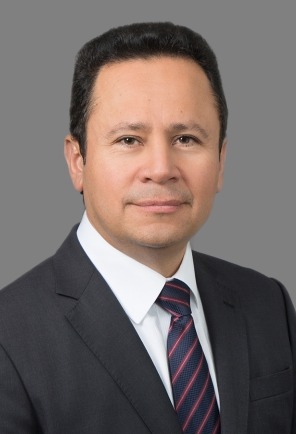Reporting Foreign Financial Accounts: Are You up to Speed with the Latest Rules?
Now that tax season is behind us and we have had a chance to catch our breath, the time has come to brush up on the constantly changing landscape of FBAR reporting.
Over the past couple of years, the IRS and the Justice Department have been aggressively enforcing the reporting obligations on foreign financial accounts (FFAs) for U.S. individuals and entities. The report, mandated by the Department of the Treasury, is commonly referred to as an FBAR (Foreign Bank and Financial Accounts Report) and is a seemingly straightforward information form. However, considering that a failure to file the report is accompanied by harsh civil and criminal penalties, it is important to pay close attention to the latest developments regarding FBAR reporting. Furthermore, the revamped voluntary disclosure program currently under way may provide delinquent taxpayers who failed to report FFAs in prior years with the last chance to clear their records with the IRS and receive a more lenient treatment.
Background and Recent Changes in the FBAR
U.S. taxpayers with a financial interest in or signature or other authority over any foreign financial account are required to file Form TD F 90-22.1, Report of Foreign Bank and Financial Accounts, for years in which the aggregate value of such FFAs exceeds $10,000. The deadline for filing the FBAR is June 30 of the year following the calendar year being reported.
Once it has been determined that a taxpayer has an FBAR reporting requirement, preparing the form is a rather straightforward task. Generally, the form requires the taxpayer to identify each FFA, the name and address of the institution where the account is held, the type of account, the account number, and the maximum balance of the account during the reporting period. But, as is common in the tax world, “the devil is in the details.” Over the past few years, the IRS and the Department of the Treasury have made numerous changes to the FBAR reporting requirements, including the definition of a U.S. person, the types of FFAs to be included, and what constitutes signature authority for purposes of these rules. Since 2008, these definitions have been modified, suspended and re-modified. Finally, in February 2011, a set of final regulations was released to clarify a number of unresolved issues. The new regulations apply to FBARs that are due on or before June 30, 2011 for FFAs held in 2010. However, taxpayers may rely on certain favorable provisions of the final regulations for prior years if they have deferred filing the FBAR based on previously released guidance.
Key Changes in the New FBAR Regulations
- Clarification of who is subject to the FBAR reporting requirements
The definition of a "U.S. person" was revised to include a citizen or resident of the U.S., or an entity, including but not limited to a corporation, partnership, trust or limited liability company, created, organized or formed under the laws of the U.S., any state, the District of Columbia, U.S. territories and possessions, and American Indian tribes. The filing requirement applies to U.S. legal permanent residents (i.e., "green card" holders), even if they elected to be treated as non-resident for tax purposes under a relevant treaty. Furthermore, the final regulations do not place a filing obligation on non-U.S. persons "in and doing business in the United States," a requirement that was introduced in the October 2008 FBAR instructions.
- Clarification on what constitutes a foreign financial account and types of accounts included
The final regulations confirm that foreign hedge and private equity funds whose shares are not available to the general public and whose shares do not have a regular net asset value determination and regular redemption feature are excluded from the definition of a "mutual fund or similar pooled fund" and are not currently considered FFAs subject to the FBAR reporting. However, the Department of the Treasury reserved the right to issue future guidance on this issue.
- Clarification on when an individual has signature or other authority
The final regulations define "signature" or "other authority" as the authority of an individual (alone or in conjunction with another) to control the disposition of money, funds or other assets held in a foreign financial account by direct communication (whether in writing or otherwise) to the person with whom the financial account is maintained.
The "signature" or "other authority" definition under the FBAR rules is applicable only to individuals. Furthermore, the Department of the Treasury explained in the preamble to the final regulations that the test for determining whether an individual has signature or other authority over a foreign financial account is whether the foreign financial institution will act upon a direct communication from that individual regarding the disposition of assets in that foreign financial account. Therefore, any individual that has the ability to control the disposition of funds alone or in conjunction with someone else, and can communicate directly with the foreign financial institution that will act upon such instructions (even if a confirmation from a second person is required), may be required to file an FBAR.
- Clarification of obligations of officers and employees
Under the general FBAR rules, officers or employees of an entity may have an FBAR filing obligation if they maintain signature authority over an FFA held by such entity. Several broad exceptions were provided to officers or employees of certain reporting entities under the prior FBAR rules. Under the new rules, the Department of the Treasury narrowed the scope of these exceptions, potentially significantly impacting the employees of public companies who were exempt in the past.
According to the new rules, the filing exception applies to five classes of officers or employees, one of which includes officers or employees of publicly traded domestic parent corporations, or their U.S. subsidiaries included in the consolidated filing, provided the officer or employee has no financial interest in the account. The regulations clarify that only accounts that are directly held by the employing entity are eligible for this exception. Therefore, for example, a CFO of a U.S. publicly traded parent with signature authority over the subsidiary's reportable FFAs may no longer rely on the exception and now has a separate FBAR filing obligation with respect to the FFAs of such subsidiary. Furthermore, U.S. officers and employees of a foreign subsidiary are not eligible for the exception and must file a separate FBAR, even if the foreign subsidiary is included in the consolidated filing of its publicly traded U.S. parent. These new rules mark a significant change to the exception that many officers or employees of publicly traded companies relied on and will likely significantly increase the administrative burden of compliance for the companies and their officers.
In addition, the regulations confirm that officers or employees who file an FBAR because of having signature or other authority over the FFAs of their employers are not expected to personally maintain the records of the FFAs and instead may rely on the employer providing them with such information.
- Consolidated filing option for non-corporate taxpayers
Under the final regulations, an entity that is a United States person and that owns directly or indirectly more than a 50 percent interest in one or more other entities required to report under this section will be permitted to file a consolidated report on behalf of itself and such other entities. Previously, only corporations that met the 50 percent ownership requirement above were allowed to file consolidated reports.
It's interesting to note that a foreign parent corporation with multiple U.S. subsidiaries subject to the FBAR filing requirement is not allowed to elect to file a consolidated report. Therefore, U.S. subsidiaries of foreign entities may not avail themselves of this relief, unless there is a U.S. common parent involved.
Penalties
The magnitude of the penalties imposed by the IRS on the FBAR violators sends a clear signal from the IRS and the Department of the Treasury that they mean business when it comes to enforcing the proper reporting of FFAs. If a person has an FBAR obligation and fails to properly file the FBAR, then such person may be subject to civil penalties not to exceed $10,000. On the other hand, a person who willfully fails to file the FBAR may be subject to a civil penalty as high as the greater of $100,000 or 50 percent of the FFA balance. If the failure persists over multiple years, the actual penalties may exceed the maximum FFA balance. On top of that, additional criminal penalties can be tacked on to willful violations of FBAR reporting.
Amnesty Program
In the landmark case against UBS in which the Swiss bank admitted to helping U.S. citizens avoid taxes, the bank agreed to a cash settlement with the IRS of $780 million. In addition, the bank agreed to reveal the identities and account information of thousands of U.S. taxpayers that held secret bank accounts in Switzerland. However, to give taxpayers a chance to own up to their unreported FFAs, the IRS implemented a voluntary disclosure program to help taxpayers with hidden offshore accounts get back on track with their U.S. tax obligations. The program permitted taxpayers to avoid criminal charges, provided they came forward with their hidden FFAs and filed original and amended tax returns, including the payment of back taxes, interest and accuracy-related penalties of up to 20 percent of the balance in the unreported FFAs. The program expired on October 15, 2009 and resulted in approximately 15,000 voluntary disclosures.
On February 8, 2011, the IRS announced a new voluntary disclosure initiative aimed at achieving similar objectives to the 2009 program. The program, called the 2011 Offshore Voluntary Disclosure Initiative (OVDI), expires on August 31, 2011 and contains many similar features to the 2009 program. However, the OVDI includes a higher penalty structure than the previous program to avoid rewarding taxpayers for not taking advantage of the original disclosure opportunity. The maximum penalty is now increased to 25 percent of the FFA's balance, but taxpayers in certain limited situations may qualify for a 5 percent rate. According to the IRS Commissioner Doug Shulman, combating international tax evasion is a top priority for the IRS and this is the last chance for taxpayers to get back into the U.S. tax system.
Alvarez & Marsal Taxand Says:
As the June 30 deadline quickly approaches, you should evaluate how the new regulations may affect your FBAR reporting requirements. The final rules bring a sigh of relief for foreign hedge fund and private equity fund holders who may not currently have any FBAR obligations. In addition, U.S. partnerships and other non-corporate U.S. entities that were previously unable to take advantage of consolidated filing may now simplify their FBAR reporting if they qualify under the new consolidation rules. However, many U.S. single-member LLCs that were previously exempt from FBAR reporting must now evaluate whether they have U.S. reporting obligations, even if they are owned by a foreign person not otherwise subject to the U.S. tax jurisdiction. Furthermore, officers and employees of publicly traded entities that previously did not have to file may now be responsible for filing FBARs if they have signature authority over the FFAs of any non-employing company. Therefore, U.S. taxpayers should carefully review their FFAs to evaluate whether any person, including corporate officers and other employees, may be potentially liable for FBAR filings. The tax director of such companies should ensure that the company notifies its officers and employees of the changed FBAR regulations and should inform them that they may now have a filing obligation, where applicable.
As a final note, U.S. taxpayers who become aware that the prior years' filings were not filed or were not properly filed may wish to consider taking advantage of the OVDI. While the penalties associated with doing so may seem high, this could be the last opportunity provided by the IRS to taxpayers to qualify for the lower civil penalties and avoid criminal charges related to the FBAR reporting. Keep in mind that in the event the IRS uncovers a reportable FFA after the OVDI expires, a taxpayer will be hard pressed to make an argument that the omission was due to reasonable cause.
Feedback:
We would like to hear from you.
Disclaimer
As provided in Treasury Department Circular 230, this publication is not intended or written by Alvarez & Marsal Taxand, LLC, (or any Taxand member firm) to be used, and cannot be used, by a client or any other person or entity for the purpose of avoiding tax penalties that may be imposed on any taxpayer.
The information contained herein is of a general nature and based on authorities that are subject to change. Readers are reminded that they should not consider this publication to be a recommendation to undertake any tax position, nor consider the information contained herein to be complete. Before any item or treatment is reported or excluded from reporting on tax returns, financial statements or any other document, for any reason, readers should thoroughly evaluate their specific facts and circumstances, and obtain the advice and assistance of qualified tax advisors. The information reported in this publication may not continue to apply to a reader's situation as a result of changing laws and associated authoritative literature, and readers are reminded to consult with their tax or other professional advisors before determining if any information contained herein remains applicable to their facts and circumstances.
About Alvarez & Marsal Taxand
Alvarez & Marsal Taxand, an affiliate of Alvarez & Marsal (A&M), a leading global professional services firm, is an independent tax group made up of experienced tax professionals dedicated to providing customized tax advice to clients and investors across a broad range of industries. Its professionals extend A&M's commitment to offering clients a choice in advisors who are free from audit-based conflicts of interest, and bring an unyielding commitment to delivering responsive client service. A&M Taxand has offices in major metropolitan markets throughout the US., and serves the U.K. from its base in London.
Alvarez & Marsal Taxand is a founder of Taxand, the world's largest independent tax organization, which provides high quality, integrated tax advice worldwide. Taxand professionals, including almost 400 partners and more than 2,000 advisors in nearly 50 countries, grasp both the fine points of tax and the broader strategic implications, helping you mitigate risk, manage your tax burden and drive the performance of your business.
To learn more, visit www.alvarezandmarsal.com or www.taxand.com.





